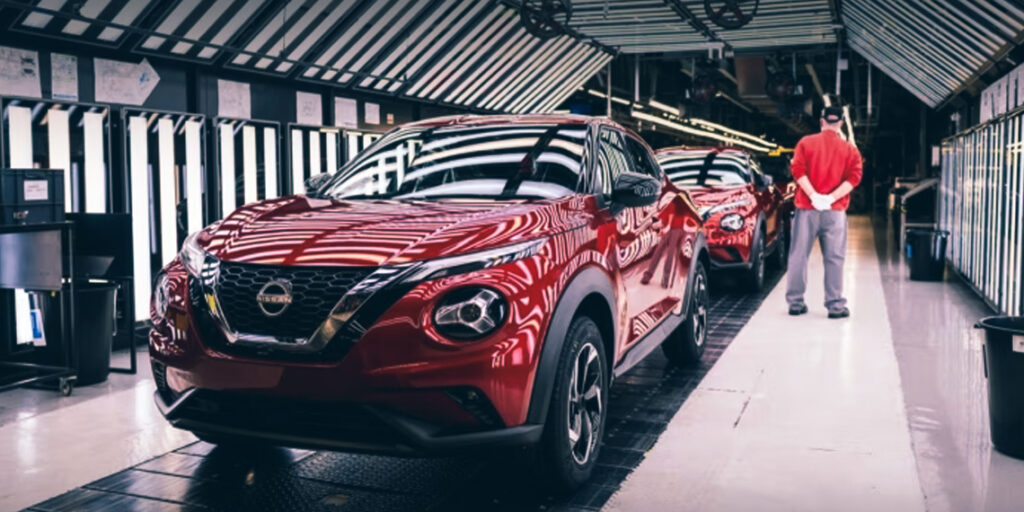Nissan plans to warn UK ministers that the nation’s car industry is at a “crisis point,” threatening jobs and competitiveness unless the government eases electric vehicle (EV) regulations, according to sources familiar with internal discussions. The crisis stems from a government quota requiring 22% of new car sales to be electric, while current EV sales sit at just 18% in the first 10 months of the year.
Automakers have been bridging this gap by purchasing credits from electric vehicle makers like Tesla. However, next year the EV sales target will rise to 28%, a level that manufacturers say is nearly impossible to achieve through credits alone, especially amidst a slump in consumer demand. This situation could expose carmakers to fines of up to £15,000 per vehicle. “The reality is that customers are not transitioning as quickly as anticipated,” a source close to Nissan stated. “Failure to address this issue within months could threaten jobs and economic growth across the industry.”
The comments come ahead of a meeting between Transport Secretary Louise Haigh and leaders from the automotive and charging sectors to discuss the UK’s shift to electric vehicles. If tangible solutions are not found during these talks, Nissan is prepared to escalate its concerns by appealing directly to Sir Keir Starmer. This underscores increasing tensions between the automotive industry and the UK Department for Transport (DfT), with some manufacturers privately expressing frustration over a lack of meaningful dialogue with government officials. One source described the DfT as “tone-deaf” to industry concerns, alleging that ministers and civil servants have consistently dismissed their appeals.
In response, the DfT stated it has been collaborating closely with Nissan, meeting with the company twice in the last two weeks to discuss the zero-emission vehicle (ZEV) mandate. “We already have flexibilities in place for manufacturers and continue to support the transition to electric vehicles,” a spokesperson said. “The government has also committed over £300 million in the Budget for this transition, with an additional £2 billion pledged to bolster automotive manufacturing in the UK.”
Nissan, one of the largest automotive employers in the UK, operates a major plant in Sunderland that employs over 6,000 workers and supports 30,000 jobs across the supply chain. The company has invested £6 billion in the facility. However, Nissan is under intense pressure globally due to slowing EV sales growth, an outdated product lineup, and declining demand in China, prompting it to cut 9,000 jobs as part of emergency turnaround efforts. A source close to Nissan revealed the company is deeply concerned about competition from China, which poses a significant threat if higher emissions targets are enforced in the UK and EU.
The UK’s ZEV mandate mandates that all new cars sold must be fully electric by 2035. Additionally, Chancellor Rachel Reeves recently confirmed plans to move up the ban on new diesel and petrol car sales to 2030, with limited hybrid sales allowed until 2035. While the UK market has performed better than other European markets, with a 25% increase in EV sales in October year-on-year—accounting for nearly 21% of all new car sales—industry officials caution that retail demand remains weak and that meeting the 28% sales target in 2024 will be challenging.
Automakers remain divided over how the government should amend the ZEV targets, with some advocating for a pause in the mandate, while others propose smaller fines and increased consumer subsidies. Environmental groups, however, argue that the targets should be upheld since manufacturers have options to meet them, such as buying credits or making significant carbon emission reductions.


